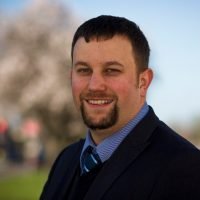Intervention is not always bad

Do you ever find yourself shouting at the TV? I find that ‘Question Time’ makes me do this, or would do if I wasn’t watching in bed and trying not to disturb the rest of the house. Maybe we don’t do it so much now that we can reach for our Twitter account and rant to the outside world that way. Anyway, I was watching last week and found myself irritated by the panellist – but more so by the studio audience. There was the normal trick where they applaud a well-made point from one panellist, only to then applaud, a moment later, a totally opposing point made by the next panellist.
However, the nature of the debate riled me this week. The background discussion related to British young men going off to fight in Syria. The debate went back and forth about why this was happening and what should happen to those who returned – an important debate, therefore, about youth aspiration, integration and identity with British society, compassion and so on. But the UKIP representative on the panel saw an opportunity to bash both the Conservatives and the Labour Party and to rant about how all this was caused by their support of the Iraq war in 2003. In itself this is again a theory worthy of discussion, but it was his final point which to me was so irritating: that Britain should not be involved in the Middle East as it as it has nothing to do with us and it does not matter to us. Now let me make it crystal clear, I am not stating here that there should be military intervention in any of these flashpoints – but what got me worked up was the sentiment: ‘It’s not to do with us so we don’t care, let them all descend into a genocidal mess – I’m alright Jack!’ Of course the world is interconnected: there is hardly an area of the world that is not connected with us. And when you look at the people risking their lives to get into the UK, they are not coming from peaceful, prosperous nations, but from a places of poverty and strife. I suspect that the answer he would offer would be to shut the doors to the wailing of humanity outside our borders and not to let anyone in. So not only is the premise wrong – we are connected to the Middle East and it does affect us – but the position of ‘splendid isolation’ is against the very tenets of faith. The question faith asks is, who is my neighbour? What is the duty I have to widow and orphan? And how can we stand against injustice?
There are some who see faith as a private belief system, which one involves oneself in for one day a week. It is completely sterile, does not touch or affect anyone else and in fact does not affect the rest of my life. I don’t see it that way: faith is part of who I am and how I think and act; it makes me a better citizen and confirms my humanity. That’s why I cannot rule out the need for intervention, and that’s why I want leaders to lead and not to confirm a selfish, self-protecting mode of operation. I pity our political leaders in the West, as they are damned if they act and damned if they don’t. But although politics might be about popularity, leadership is not.



